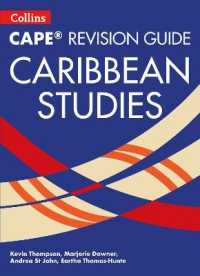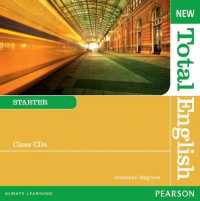- ホーム
- > 洋書
- > 英文書
- > Philosophy
Full Description
Philosophy and Memory Traces defends two theories of autobiographical memory. One is a bewildering historical view of memories as dynamic patterns in fleeting animal spirits, nervous fluids which rummaged through the pores of brain and body. The other is new connectionism, in which memories are 'stored' only superpositionally, and reconstructed rather than reproduced. Both models, argues John Sutton, depart from static archival metaphors by employing distributed representation, which brings interference and confusion between memory traces. Both raise urgent issues about control of the personal past, and about relations between self and body. Sutton demonstrates the role of bizarre body fluids in moral physiology, as philosophers from Descartes and Locke to Coleridge struggled to control their own innards and impose cognitive discipline on 'the phantasmal chaos of association'. Going on to defend connectionism against Fodor and critics of passive mental representations, he shows how problems of the self are implicated in cognitive science.
Contents
List of figures; Preface; List of abbreviations; 1. Introduction: traces, brains and history; Part I. Animal Spirits and Memory Traces: Introduction; 2. Wriggle-work: the quick and nimble animal spirits; 3. Memory and 'the Cartesian philosophy of the brain'; Part II. Inner Discipline: Introduction; 4. Spirit sciences, memory motions; 5. Cognition, chaos and control in English responses to Descartes' theory of memory; 6. Local and distributed representations; 7. John Locke and the neurophilosophy of self; 8. The puzzle of survival; 9. Spirits, body and self; 10. The puzzle of elimination; Part III. 'The Phantasmal Chaos of Association': Introduction; 11. Fodor, connectionism and cognitive discipline; 12. Associationism and neo-associationism; 13. Hartley's distributed model of memory; 14. Attacks on neurophilosophy: Reid and Coleridge; Part IV. Connectionism and the Philosophy of Memory: Introduction; 15. Representations, realism and history; 16. Attacks on traces; 17. Order, confusion, remembering; References; Index.







